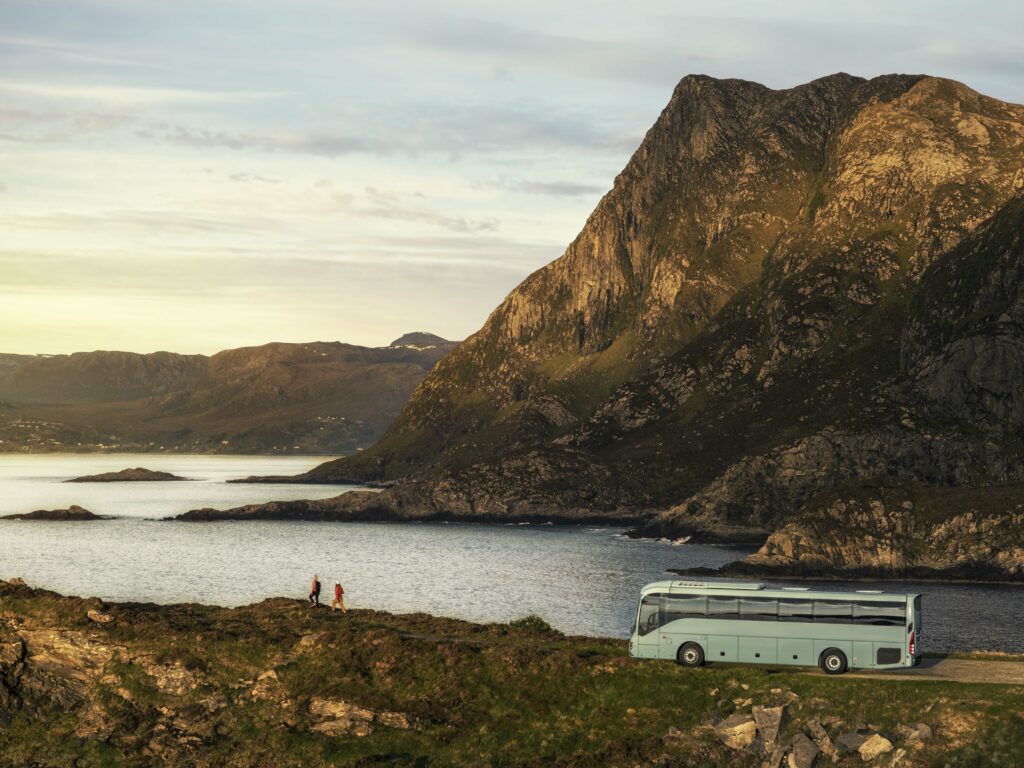Last month, Volvo Bus launched a new platform for the 9700, 9900, B13R/RLE and the 9700 double decker models. With a focus on improved safety, driver efficiency and enhanced comfort for both passengers and driver, Volvo Bus sees this development as the future in sustainable coach travel. For operators the stand out improvement is the estimated fuel savings of up to 9%. With power output ratings up to 500 hp, and the choice of an integral coach or a chassis, there is a bus for every type of operation on offer.
“With this introduction of a new coach platform we are taking yet another Important step to providing sustainable people transport solutions,” said Anna
Westerberg, President of Volvo Buses. “It’s a global offer to operators of premium Coach services with comprehensive scope for adapting to market needs.”
The most appealing feature of Volvo Bus’ new coach platform is the new drivetrain, with its improved fuel efficiency. The new chassis will reduce fuel consumption and therefore also total emissions. Volvo has a clear vision and a firm commitment on sustainability. Recognising that diesel will be around for some time into the future, Volvo’s plan for zero emissions includes not only today’s electric vehicles, the new coach chassis also offers the benefits of alternative fuels and substantial efficiency improvements for long-distance operations.
The new chassis is the basis for Volvo’s 9000 range of coaches, and it is also available as the B13R chassis in all Volvo Bus’ main markets, including Ireland. Two or three-axle configurations are available depending on the market. The power ratings span from 380 to 500 hp, with all engines certified for HVO, while the 460 and 500 hp versions are also certified for biodiesel. To complete the range, there is also a low-entry configuration, ideal for building premium double decker coaches.
The core of the new coach chassis is a new Euro 6 version of Volvo’s trusted and well-proven 13-litre engine.
“We see the entire driveline as a winning concept,” added Mattias Forssén, Global Product Director at Volvo Buses. “One of the cornerstones is the unique new cooling system, while the new version of Volvo I-Shift together with the new engine enables us to further reduce engine speed. The cooling system is a new design. It is split into two autonomous sections, both operated by highly energy-efficient electric fans. The beauty of it is that we don’t just save fuel with this setup – we can also maintain an extremely even temperature in the engine compartment. This makes it possible for us to extend service intervals, which in turn further enhances operational uptime.”
On the inside the driver will find an all-new dynamic instrument cluster with different views, adapted to different driving situations.
“We have also updated the steering wheel,” continued said Mattias. “The neck tilt makes entry and exit easier for the driver, and the wheel now includes functions for media operation and cruise control.”
For the benefit of driver and passenger comfort, the suspension has been updated, as have the engine mountings. The result is twofold: reduced vibrations and interior noise, in combination with a smoother ride.
Fleet Bus & Coach was given the opportunity to drive the coaches on the test track near Boras in Sweden. For sure the improvements made are noticeable. The new mirror camera, which is fast becoming a feature on most new buses, brings noticeable improvements in the quality of all round vision delivery. Furthermore, Volvo has added a new feature to assist the driver. Clever software captures images from all the cameras on the coach to give a 360 degree view from above, a great help when turning right to watch the tail swing.
Another notable enhancement is the extra knee protection that gives more protection in the event of a frontal impact, just one of the safety features that will add to the feeling of security while driving.
Overall Volvo Bus has, with these enhancements and developments, made a great coach range even better.



